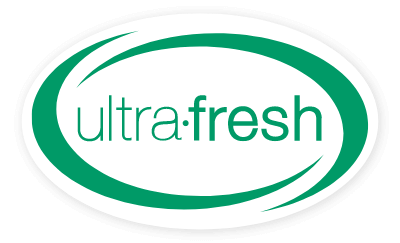Updated April 2, 2019
When plastics manufacturing started to take off many years ago, it seemed like a great idea. With quick production times and lower costs, disposable and easily replaceable items became the norm.
Over time, the negative impact on both the environment and consumer's pocketbooks became clear. We started to look for ways to extend the lifespan of these products.
That's where an antimicrobial masterbatch can help.
Read more about the difference between the terms antibacterial vs antimicrobial.
Benefits of Using an Antimicrobial Masterbatch
Adding antimicrobial additives offers a competitive edge and an economical means of increasing value and performance.
An antimicrobial masterbatch used to treat plastic and polymers extends the lifespan of finished products in a couple of ways:
Reduces Physical Degradation
When bacteria, mold and mildew start to grow on plastics, they can start to cause those products to break down. Antimicrobial additives help to inhibit the growth of microbes. As a result, the physical degradation of plastic and polymer products is slowed.
Hinders Undesirable Odors and Staining
The same microbes that cause material breakdown can also cause plastic products to take on unpleasant odors and/or unsightly staining that make them undesirable and unusable.
These odors and stains can be prevented with antimicrobial additives by inhibiting the growth of unwanted bacteria and fungi before they proliferate.
Plastic Products and Industries that Benefit from Antimicrobial Additives
We use plastics in pretty well every area of our lives - from the kitchen to the office - and most industries benefit from incorporating an antimicrobial masterbatch.
Products that spend a lot of time in high humidity environments or in/near water are more susceptible to bacterial growth, mold and fungi.
[caption id="attachment_1571" align="aligncenter" width="550"]

Mold on a PEVA shower curtain liner.
To show how an antimicrobial additive brings value to finished goods, let's take a look at something like a shower curtain liner.
A liner without antimicrobial protection quickly become a source of musty odors and unsightly staining. Liners incorporating antifungal protection via an antimicrobial masterbatch help to keep the product looking and smelling fresher.
Advertising this value-added feature also provides a competitive edge in the marketplace. Read "The 10 best shower curtain liners for 2018" as an example of how antimicrobial additives become one of the top desired features since it really does make a noticeable difference.
Ever wonder why your shower curtain liner turns pink? We've got the answer!
Other areas that benefit from the use of an antimicrobial masterbatch include:
- Healthcare - Everything from plastic medical devices to counters and gloves can be protected using antimicrobial additives
- Commercial and Building - Seating, auto interiors, insulation, pool liners, roofing membranes, vinyl siding and more
- Personal Uses - Includes anything from housewares like toilet seats, flooring and mattresses to fitness equipment like yoga mats and footwear
Adding An Antimicrobial Masterbatch to the Manufacturing Process
Making plastics which bacterial and fungal efficacy, during the manufacturing process can be quite simple and cost effective.
An antimicrobial masterbatch is supplied in carriers suitable for most polymers including PVC, PE, HDPE, PP, polyamide, polyester, ABS, polycarbonate, and styrenics.
It is customized to suit most needs, from high-temperature applications to food contact end uses.
[caption id="attachment_2724" align="aligncenter" width="800"]

Antimicrobial masterbatch samples made using different polymers and additives to suit customer needs
The Importance of Choosing to Work with an Antimicrobial Plastic Expert
There are many companies today supplying antimicrobial masterbatch. However, what sets a good antimicrobial supplier apart from the rest is the range of their product offerings, technical support, customer service and overall antimicrobial expertise.
When assessing antimicrobial manufacturers, choose a partner who will help you to find the right level of antimicrobial additive to give optimal protection.
Adding higher levels than needed only increases costs. Selecting a supplier that has their own microbiology and chemistry laboratories to assess antibacterial and antifungal properties of the finished goods is essential.
This provides piece of mind confidence in knowing your antimicrobial products are well protected while minimizing overall costs.
Read more about what to look for when research antimicrobial companies to work with.
The Difference an Ultra-Fresh Antimicrobial Masterbatch Makes
[caption id="attachment_1583" align="alignright" width="350"]

Clear plastic, made using a customized antimicrobial masterbatch containing Ultra-Fresh, remains free of fungal growth after testing using the ASTM G21.
[caption id="attachment_1580" align="alignleft" width="350"]

Untreated clear plastic supports fungal growth after testing using the ASTM G21.
Embracing our commitment to innovation, we have partnered with VinylPlus® and the Vinyl Sustainability Council in our united initiatives for the elimination of hazardous ingredients and processes from the vinyl manufacturing industry. In addition, no Ultra-Fresh products or ingredients are listed on California's Proposition 65.
Learn More:
- An Introduction to Microorganisms
- Antimicrobial Agents: What are They?
- Antimicrobial Textiles: The Benefits
- More blog articles...
Learn more about us or contact us for more information.
